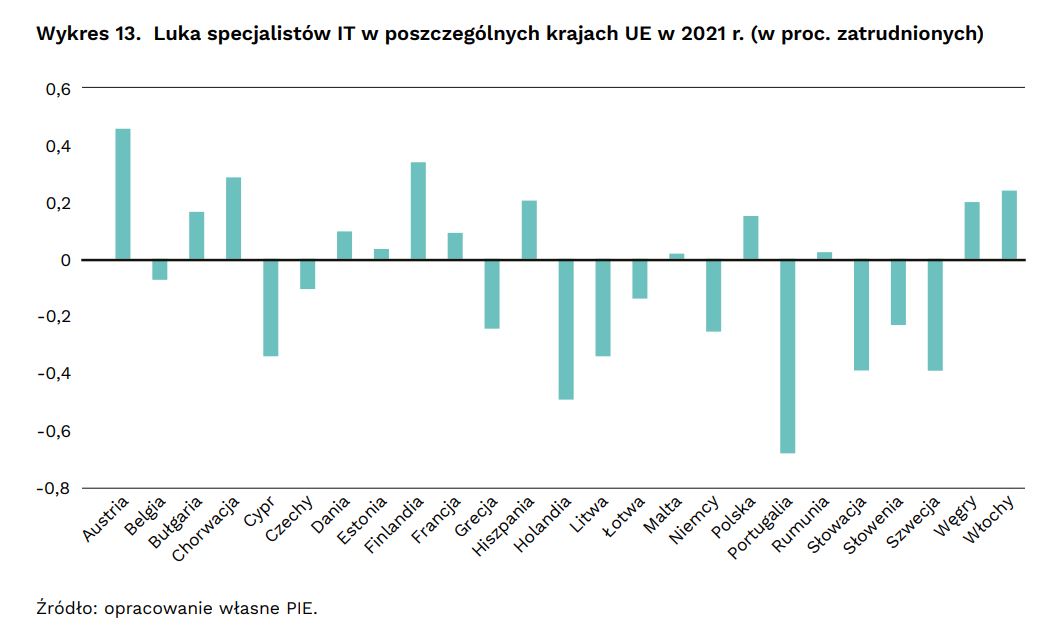Poland has the EU’s third lowest number of IT professionals as a share of its workforce and Polish IT firms say that they find over 40% of their vacancies hard to fill, a new report has found.
The Polish IT sector employs around 586,000 people, notes the Polish Economic Institute (PIE), a state-linked think tank. That represents 3.5% of the country’s total workforce – equal with Bulgaria and ahead of only Romania and Greece.
At the other end of the scale are Sweden (8%), Finland (7.4%), the Netherlands and Luxembourg (both 6.7%).

Share of IT professionals in overall workforce in 2021 by country (source: PIE, based on Eurostat data)
However, PIE argues that, while Poland would need almost 150,000 more IT professionals to catch up with the EU-wide figure of 4.5%, in reality the shortfall should take into account the size and structure of countries’ economies as well as their level of digitalisation.
When that is done, PIE calculates that Poland’s share of IT professionals should be at 3.65% of the workforce. That means it actually needs an additional 25,000 IT professionals to reach the required level.
“The results of the analysis indicate that the IT specialist shortage in Poland exists, but its size is relatively small,” wrote PIE in its report.

The shortfall of IT professionals by country in 2021 as % of the entire workforce (source: PIE)
Even that shortage may be hard to fill, however, as PIE found that Polish IT firms struggle to recruit new staff. Such companies reported that 42% of their vacancies were hard to fill, meaning that it can take more than six months to find the right candidate.
One in five Polish IT firms had to abandon some projects as a result of recruitment difficulties and 61% had delays in product delivery. Experienced mid- to high-level professionals are the most difficult for companies to hire, found PIE.
The recent influx of IT specialists from the east, especially from Belarus after the 2020 protests, and from Ukraine after the Russian invasion, has not allowed the Polish IT sector to fill the gaps either, the authors of the study note.
According to one of them, Krystian Łukasik, domestic companies struggle to attract talent as they are often outbid by foreign multinational competitors and, despite Poland having strong IT services exports, local companies from outside the IT sector are not highly digitalised.
The authors of the study also pointed to the relatively low digital literacy of the Polish society (the third-lowest in the EU) and the falling number of STEM (science, technology, engineering, mathematics) graduates as the reason why bridging this shortage might prove difficult.
A report published last year by an IT recruitment platform identified similar problems. It calculated that Poland has a shortfall of around 50,000 IT specialists, a figure that is set to rise to 100,000 in the next decade.
Main photo credit: cottonbro studio / Pexels

Alicja Ptak is deputy editor-in-chief of Notes from Poland and a multimedia journalist. She has written for Clean Energy Wire and The Times, and she hosts her own podcast, The Warsaw Wire, on Poland’s economy and energy sector. She previously worked for Reuters.




















